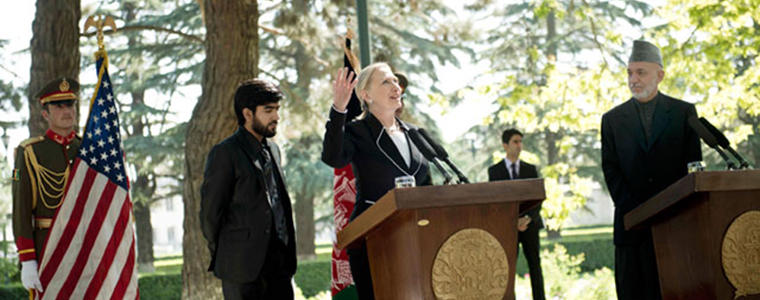Scott Smith, deputy director for USIP's Afghanistan Program, talks about the 16 Billion in civilian aid pledged to afghanistan during the Tokyo Conference on Afghanistan.

The last time I was in Tokyo was in January 2008 to attend a meeting of the Joint Coordination and Monitoring Board—a group of Afghan and international representatives set up in 2006 to monitor progress in meeting the benchmarks of the Afghanistan Compact.
It was my first visit to Tokyo and my impressions of the city were skewed by Sofia Coppola's highly acclaimed film from five years before, "Lost in Translation." The movie is about a celebrity of diminishing popularity who comes to Tokyo to pick up what might be one of his last big paychecks for making a commercial that milks his earlier fame.
This is not a digression. It is an introduction.
Unlike my 2008 visit, last weekend I was not part of any official delegation. I had been invited to speak on a panel about political reconciliation in Afghanistan that coincided with the international conference. While not having credentials to participate in the conference, I bumped into enough former colleagues to parse the official documents and the press reports.
The New York Times headline summed it up: "$16 Billion in Civilian Aid Pledged to Afghanistan, with Conditions." The Times describes the billion pledge as a "diplomatic triumph for American officials, who have lobbied for longer term international support for Afghanistan." The reality of this triumph is more mixed. The $16 billion figure is based not on firm pledges by individual countries, but on a general pledge by countries to maintain current levels of funding over the next four years. Average annual international assistance over the past 10 years was estimated at around $4 billion, which gives us the $16 billion by 2015. Anthony Cordesman recently issued an excellent report that argues nobody really knows the exact amount of civilian assistance. Estimates in Tokyo apparently ranged from $3.4 billion to much higher numbers, eventually settling on $4 billion.
The Times hints at this ambiguity: "Mrs. Clinton did not specify how much the United States would contribute to the $16 billion, saying that Washington would maintain its level of financing." The U.S. is by far the largest donor, but it did not sign up to a dollar pledge. As one of my sources said, speaking generally about the $16 billion, "There's not a lot of commitment in that commitment."
The "conditions" were contained in an annexed "Tokyo Mutual Accountability Framework." This is another iteration of the long ago "London Compact" that gave birth to the JCMB. The London Compact had "benchmarks and timelines;" the Tokyo Framework has "goals" and "indicators." Those interested in following the full geneology of these exercises can consult, in addition, the 2010 London Conference "commitments," as well as the list of reforms from the 2010 Kabul Conference.
There is, ironically, a glimmer of hope that the Tokyo framework might succeed where its predecessors didn't because of the withdrawal of international forces. Previous threats by donors to condition aid to good governance were simply not credible; the large number of troops from donor countries guaranteed large aid inflows. Now, as national contingents are leaving and the world remains in economic recession, some donors might be looking for excuses to reduce assistance. It was interesting how Secretary Clinton referred to the $16 billion in her intervention: "I am very pleased that Prime Minister Noda has confirmed that $16 billion is available from the international community" (my emphasis). The implication was clear: it is there, but it is not automatic.
The more striking point about the Tokyo framework is that it almost didn't come into being. The idea of such a framework was the conceptual compromise that allowed the Tokyo conference to happen. Before that, the conference was suspended over a never-ending argument between Afghans who wanted funding and an increasingly broke international community that wanted—and really meant it this time—guarantees that the money wouldn't be wasted. But the actual drafting of the framework was left to the last minute, and was hastily put on paper by a small group of diplomats in Kabul, and then finalized in Tokyo.
In the end, enough came out of Tokyo to keep the main players happy. President Karzai can go back to his people and assure them of continuing international support. Everyone else can return to their legislatures and finance ministries and assure them of meaningful conditions. But there was no mistaking the shift in mood. Like the Bill Murray character in "Lost in Translation," Karzai's popularity isn't what it once was. International patience with Afghanistan continues to wear thin, and other priorities are becoming increasingly pressing. In fact, I'm told that most of the bilateral discussions in Tokyo were not about Afghanistan at all. They were about Syria.



